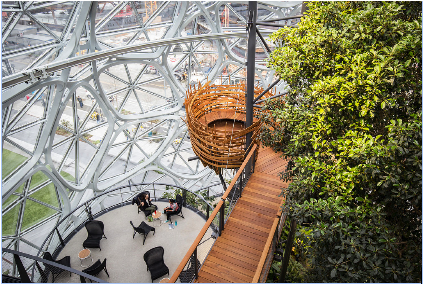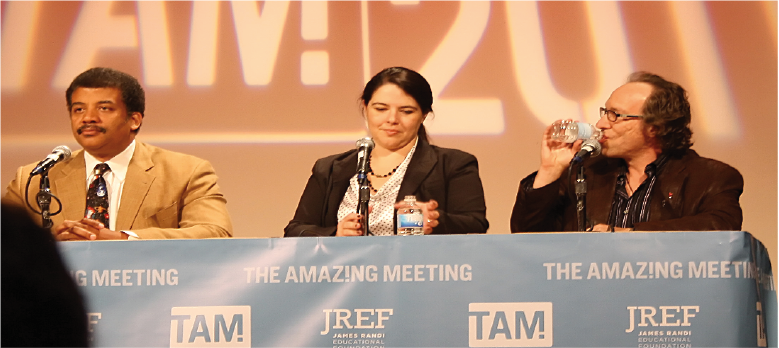The zeitgeist of our time revolves near universally around important technology companies and their amassment of power over our lives. In what felt like the final season of a reality TV show, Amazon spent the last year courting states and municipalities to fight each other in a race to the bottom of corporate taxes, all for the coveted privilege of having Amazon HQ2 built in their jurisdiction. It was a complete waste of time.
States like Ohio and Michigan set up committees, created huge and complex proposals, and sent Amazon vast swaths of data all in the hope of having Amazon “create 50,000 jobs” in their deteriorating urban areas. In total, over 200 cities competed. Their final choice, well really two choices, were the most obvious: New York City and right outside Washington DC.
It seems that for all the fanfare, Amazon created a competition not to spur the economies of the American heartland, but to 1) hoover up as much data as they could on major US cities and 2) to force DC and NYC into a bidding war with 200 straw-man municipalities in an attempt to gain favorable tax policies. To some on the right, this smells of crony capitalism. To many on the left, it reeks of corruption. To me, it is an indication of Amazon’s pernicious power and influence.
Amazon is a giant. They account for 43% of all online sales. They employ 7.5% of Seattle’s working-age population. One in four US adults owns Amazon Prime. For a brief moment a few months ago they were valued at over one trillion dollars.
And it is not just size: Americans love Amazon. According to polls by NYU and Georgetown, Amazon is the second most trusted institution in the country behind only the military. It is not hard to see why. Amazon is cheaper than many competitors, and they can offer substantially better shipping rates.
These benefits can only exist, however, because Amazon has notoriously used cheap and predatory pricing techniques to undercut competition and steal their market share. And, they have control over a potent catch-22 — many companies need to sell on Amazon to grow their business given the clout of Amazon’s shopping platform. But to sell on Amazon is to give them your products’ selling data. Amazon uses this data, finds your best selling products, buys them from the manufacturer directly, and then sells them on Amazon for cheaper than you.
Further, a mostly unknown tranche of Amazon’s power derives from Amazon Web Services (AWS). AWS provides cloud-computing and server space for a truly-unbelievable list of institutions: Airbnb, BMW, Comcast, Dow Jones, General Electric, Johnson and Johnson, Lyft, McDonalds, Netflix, NASA, Samsung, Spotify, Sony, the Financial Times, the CIA, the European Space Agency, the UK Ministry of Justice, the US Department of State, Time, and that is not even close to the full list.
The prominence of AWS means that Amazon has over 50% of the market-share in cloud-computing. Further, it means that Amazon has a vertically integrated pipeline of consumer data: from personal data like where you live, what you like, and where you work to consumer data like what products you buy.
The issue we have run into is that Congress appears sclerotic to the demands of the current time. They have shown not only a complete lack of understanding when it comes to these large tech companies, but also a lack of desire to do anything about their growing influence.
As long as Amazon continues to have lower prices than its competitors, it will continue to be seen as contributing to the general consumer welfare. And as long as Congress has the view that it is a net good for consumers, they will refuse to treat it as a monopoly.
Free market ideals only work when there is intense competition. Amazon crushes the competition.
This piece does not argue for a specific way to deal with Amazon moving forward; although, the Economist and the Wall Street Journal have both suggested a slew of ideas like breaking Amazon up and forcing them to share their data with competitors.
Instead, I want to conclude my piece with two ideas on how to move forward. For one, Congress and society, writ large, need to begin looking beyond the consumer welfare doctrine. Amazon still has lower prices than many competitors, but their ability to undercut competition has allowed them to grow at a meteoric pace. We are not even close to Amazon’s zenith, and they may gain so much power in the future that it will be impossible to break them up entirely. The second thought is that we need members of Congress who understand the technological issues at hand. More engineers, scientists, and technology industrialists need to run for office to inject Congress with their understanding. Without taking the right steps moving forward and by shunning a proactive approach to handling Amazon, they may become overgrown. We as consumers will suffer in the long run if Amazon becomes a monopoly and is able to maintain its overextended influence on politics. The forest is due for a little trimming.



'Cut down the Amazon: How to handle tech conglomerates in the 21st century' has no comments
Be the first to comment this post!